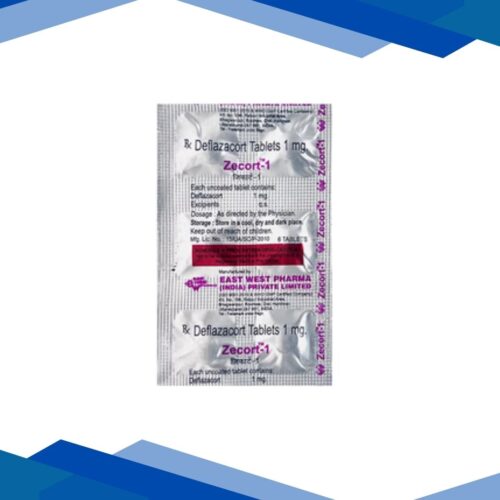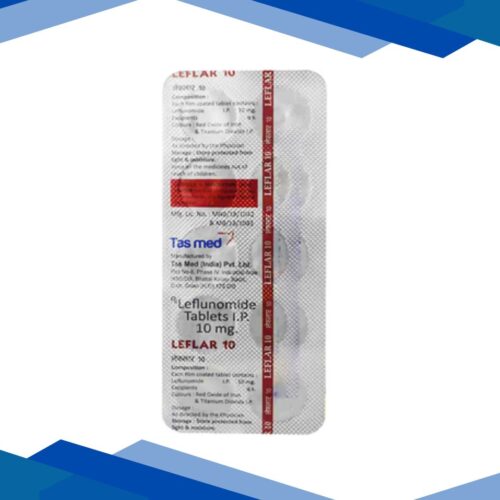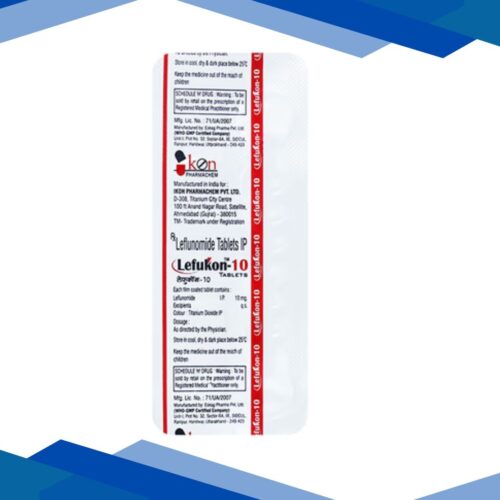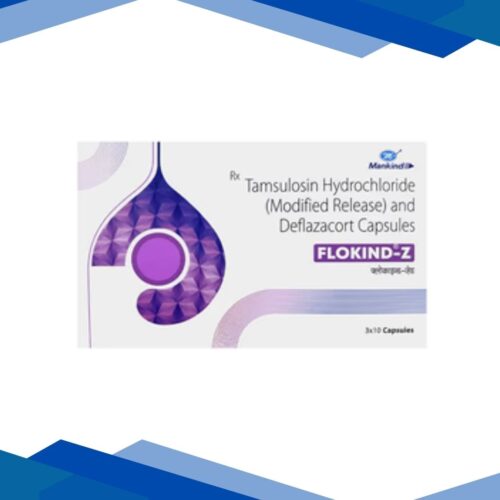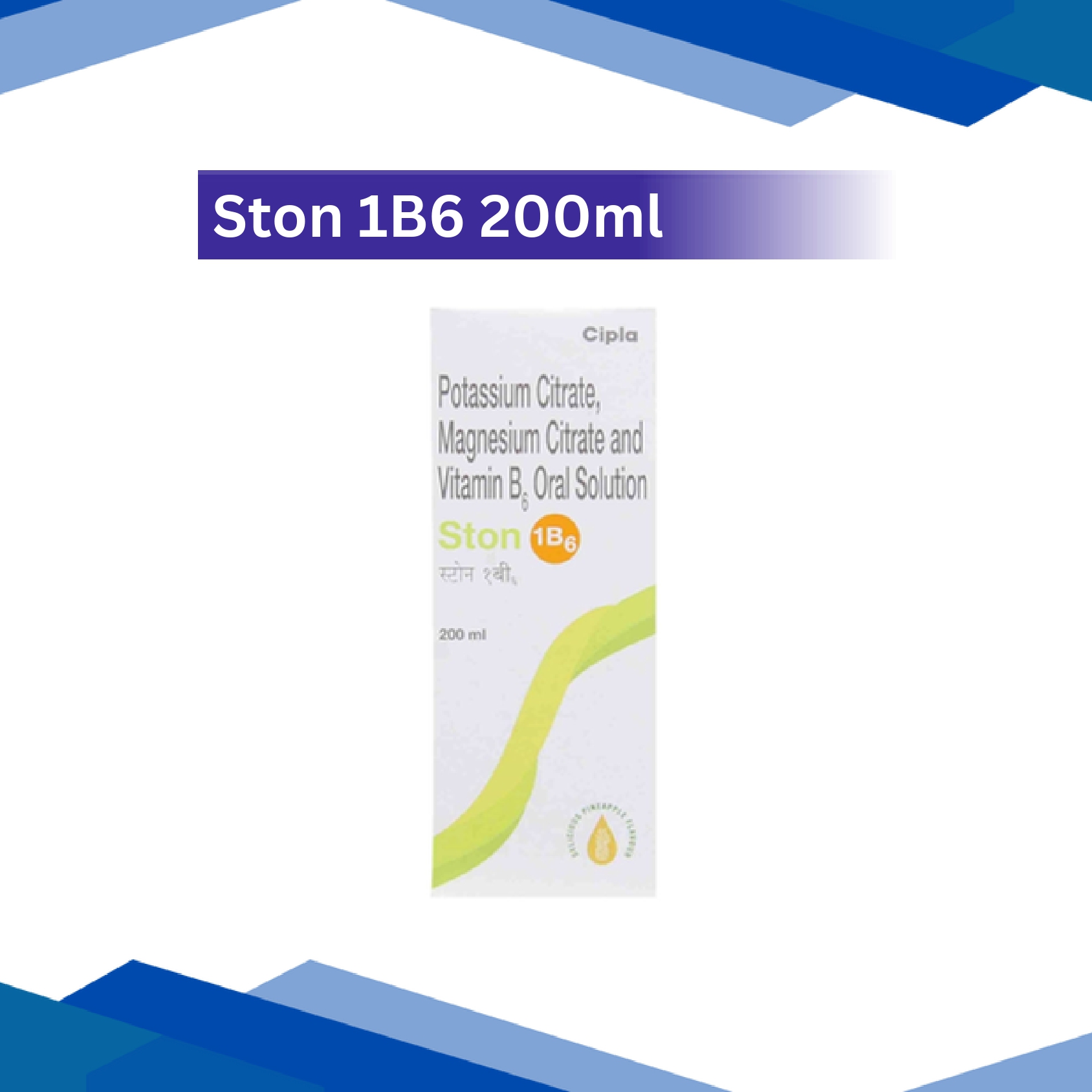FLOKIND Z Capsule 10’s
Ston 1B6 200 ml
No Prescription yet? Don’t worry! Click Here to Get Online Consultation
Why Prescription is Required?
✅ Providing Right Medicines
Prescriptions are complex documents. We proofread and recheck at various steps to provide you the right medication in the correct form and dose.
⚖️ Helps Comply with the Law
Most medicines cannot be sold without a valid prescription, as per the Drugs and Cosmetics Act, 1940 and Rules, 1945.
Book Appointment with Doctor
Ston 1B6 200 ml is an oral solution used as a urinary alkali and stone‑preventive agent. For more details kindly click on Medicine Salts below:
Potassium Citrate
POTASSIUM CITRATE
Overview:
Potassium citrate is a drug that assists in the urine becoming less acidic. In doing so, it prevents the production of some forms of kidney stones (such as uric acid and calcium oxalate stones) as well as treatment of diseases brought about by excess acid in the body. It acts by providing potassium and alkali-fying the urine, rendering the environment less conducive to the growth of the stones.
Classification: Urinary alkalinizer
Uses:
- Prevents and treats kidney stones (especially uric acid and calcium oxalate stones).
- Used to correct metabolic acidosis in people with chronic kidney disease.
- Used in renal tubular acidosis to correct acid-base imbalance.
- Provides potassium supplementation in people with low potassium levels.
- Reduces the risk of stone recurrence by keeping urine alkaline.
How it works:
Potassium citrate works by alkalizing the urine. After administration, it releases potassium ions (K⁺) and citrate ions. The citrate is metabolized to bicarbonate in the liver, which raises systemic and urinary pH, making the urine less acidic. This environment prevents the formation of uric acid and calcium oxalate kidney stones and helps correct metabolic acidosis. It helps replace potassium in the body, which may be low in certain kidney conditions or acid-base imbalances.
Dosage: As prescribed by your doctor.
Side Effects:
- Stomach upset, nausea, or vomiting
- Diarrhea or loose stools
- Abdominal pain or cramps
- Gas or bloating
Precautions:
Potassium citrate should be taken exactly as your doctor tells you. It’s important to drink plenty of water to help it work properly and prevent kidney stones. People with kidney problems need to be careful, because too much potassium can build up in the body. Regular check-ups for potassium levels and kidney function are important, and you should avoid taking extra potassium from other medicines or salt substitutes unless your doctor approves.
Disclaimer:This content is for informational purposes only. Always consult a healthcare provider for medical advice and proper dosage.
Vitamin B6
VITAMIN B6
Overview
Vitamin B6 is an essential nutrient that your body needs to stay healthy. It plays a big role in keeping your nerves, brain, and blood cells working properly. Since your body can’t make it on its own, you get it from food or supplements
Classification
Vitamin B6 is a water-soluble vitamin, part of the B-complex family. This means it dissolves in water and doesn’t stay stored in the body for long — so you need to take it regularly through diet or supplements.
Uses
Vitamin B6 is used for:
Boosting brain function and mood
Supporting healthy nerves
Forming red blood cells
Helping the body break down proteins and carbs
Relieving nausea during pregnancy
Improving PMS symptoms
Preventing or treating vitamin B6 deficiency
How It Works
Vitamin B6 helps the body:
Make neurotransmitters – chemicals that send messages in the brain
Produce hemoglobin – the part of red blood cells that carries oxygen
Break down food into energy
Keep the immune system strong
In short, it helps your brain, nerves, and metabolism stay in balance.
Dosage
As prescribed by your doctor.
Side effects
Usually safe when taken in normal amounts. But in large doses or long-term use:
Numbness or tingling in hands and feet
Nausea or stomach pain
Sensitivity to sunlight
Tiredness or headache
Nerve damage (very high doses over time)
Precautions
Don’t take high doses for a long time without a doctor’s advice.
Talk to your doctor if you have nerve problems, kidney disease, or are on other medications.
Safe during pregnancy and breastfeeding in recommended doses, but avoid overdosing.
Always follow the label or doctor’s instructions for the correct dosage.
Disclaimer
This content is for informational purposes only. Always consult a healthcare provider for medical advice and proper dosage

